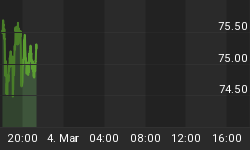In response to Robots Will Change World Beyond Recognition reader "DB" has a couple of questions:
- Who can afford to buy what the robots produce?
- Does this lead to a world war between the have and have-nots?
Those are key questions that should be on everyone's mind. But recall there were two viewpoints written in my post. Bank of America paints one picture and McKinsey another.
- McKinsey: Automation Will Change Jobs More Than Kill Them
- Bank of America: Robots and other forms of artificial intelligence will transform the world beyond recognition as soon as 2025
Pater Tenebrarum at the Acting Man blog pinged me with his thoughts (similar to ideas I have expressed before).
I'm convinced McKinsey is right, for the simple reason that this is precisely the history of economic progress: the more productive production processes have become due to automation, the more the division of labor has increased, and the more new jobs and industries have come into being, and the more incomes, leisure time and life expectancy have increased as well. Just watch this fascinating video and think about it for a moment: Would we be better off or worse off if this machine didn't exist?
Emphasis his, video follows.
One could have presented a thousand videos if not ten thousand videos asking the same question Pater posed: "Would we be better off or worse off if this machine didn't exist?"
The problem is not technology. Rather, the problem is the Fed's response to technology.
Reader Brad agrees. Brad writes ...
Your conclusion was perfect: "Regardless of which viewpoint you think more likely, it should be perfectly clear that robots are a huge deflationary force."
The elites don't comprehend it.
Brad
Central Bank Insistence on Inflation in a Deflationary World
Central bank insistence, especially the Fed's insistence, on 2% inflation in a technologically deflationary world is precisely the driver of income inequality that the Fed and others complain about.
The solution is not higher minimum wages, but rather deflation that let's people buy more with their money. It's not about how much one makes but how far it goes that matters. And the Fed is hell-bent on making sure the money you make goes less far each year.
Fed policy benefits the banks, the government taxing bodies, and the already wealthy with first access to money. Will this eventually lead to a war between the have and have-nots?
Actually, an economic war is already underway. How violent the war gets remains to be seen.















